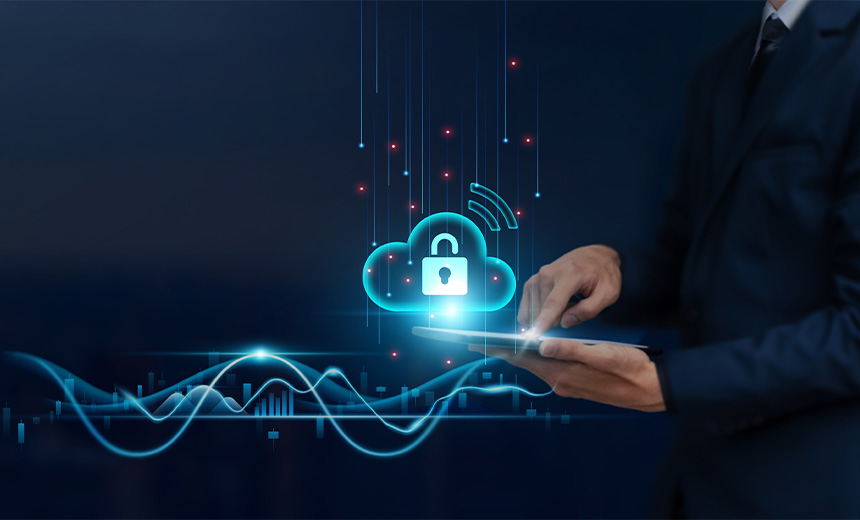Cloud data security and resilience, cloud security, and security operations
Embracing Zero Trust and AI in cloud security
Ashish Khanna •
November 17, 2024
Zero Trust, AI-driven security, and automation tools are reshaping how organizations maintain uptime, even during a cyberattack. These developments underscore how the future of enterprise resilience is increasingly linked to advances in cloud security.
See also: Webinar | Prisma Access Browser: Enhancing security for browser-based work
Industry analysts estimate that half of workloads now run on cloud services, and this number could reach 75% when adding specific software as a service, platform as a service, infrastructure as a service and hybrid cloud services.
As companies increasingly rely on cloud services, the volume and frequency of cyberattacks has also risen. According to CrowdStrike's Counter-Adversarial Operations Report, cloud intrusions have increased by 75%, with adversaries leveraging identity-based technologies to persist and escalate privileges.
Separately, IBM's 2024 Cost of a Data Breach Report found that the average global cost of a data breach rose to $4.88 million, and breaches involving the public cloud were among the most expensive, averaging $5.17 million per incident.
For organizations around the world, this should serve as a clear warning that you are only as strong as your weakest link – and increasingly, that weak link can be cloud-related.
Emerging cloud security developments
Enterprise resilience increasingly relies on cloud security advances, with zero trust and AI-driven automation reshaping how organizations secure operations and maintain resilience.
Zero Trust is gaining momentum as organizations see the need for more robust security. The Zero Trust model requires constant verification of users and devices, regardless of their location inside or outside the network. Guided by the mantra “Never Trust, Always Verify,” Zero Trust frameworks can help organizations secure access points and help reduce the likelihood of unauthorized access, reducing the risk of compromise.
Meanwhile, artificial intelligence and automation are transforming cloud security by enhancing threat detection and incident response capabilities. AI-powered security tools can quickly analyze massive amounts of data, identifying patterns and anomalies that may indicate a security breach in near real-time.
While malicious actors can also leverage AI technology to farm AI-powered threats, AI is clearly well-positioned to help identify patterns and anomalies in large data sets that would otherwise be impossible for humans to detect in real time. This can result in faster threat detection and faster incident response. This can also help organizations take proactive measures to prevent security incidents rather than just react to them.
Automation often involves using AI to handle routine security tasks such as patch management, vulnerability scanning, and compliance monitoring to help ease the burden on overworked security teams. By leveraging automated tools, organizations can consistently complete time-consuming tasks with less likelihood of manual errors.
Additional developments to help with resilience
In response to increasing zero-day threats, Verizon's cybersecurity capabilities have evolved to address these vulnerabilities, demonstrating the need to use more than one type of security control to protect operations. Verizon relies on a defense-in-depth strategy and is constantly integrating its security controls. For example, the combination of cloud security posture management, cloud access security brokers, identity and access management systems, cloud workload protection platforms, and encryption and key management can help organizations achieve comprehensive cloud security protection.
Cloud security advances such as Secure Internet Gateways, or SIGs; Data Loss Prevention, or DLP; Enhanced threat intelligence feeds can also significantly improve an organization's security posture. SIGs provide secure Internet access, block malicious traffic and prevent data breaches. DLP solutions protect sensitive data by monitoring and controlling its movement across the network. Enhanced intelligence feeds provide real-time information to help organizations stay ahead of threats.
Tips on best practices to help with resilience
Chief Information Security Officers play a pivotal role in enhancing cloud security to maintain economic stability and continued operational resilience. They must keep pace with emerging threats and technological advances to ensure their organizations are well protected.
They need to deploy strong security measures, invest in advanced tools and foster a culture of security awareness. In fact, one of the most effective ways to improve cloud security involves training employees to recognize and respond to phishing and social engineering attacks. IT managers and security leaders should focus on providing comprehensive software tailored to individual roles within their organizations. Conducting regular vulnerability assessments, deploying comprehensive incident response plans, and continuous monitoring of critical cloud applications can also help enhance security and resiliency.
Regardless of whether organizations are working to secure data, perimeters, endpoints, applications, or their ability to detect and respond to threats, Verizon is ready to help.
It provides organizations with the expertise they need to help secure cloud security for the future. By adopting advances such as zero trust, artificial intelligence, and automation, companies can reduce risks and help better protect their operations. For more in-depth insights on strengthening cloud security and ensuring resiliency, read Verizon's latest insights here.



